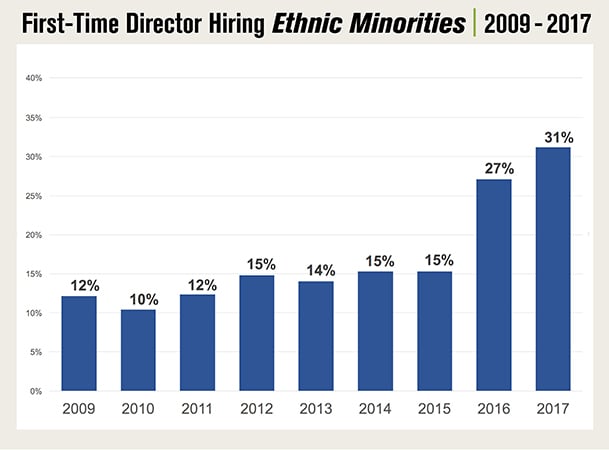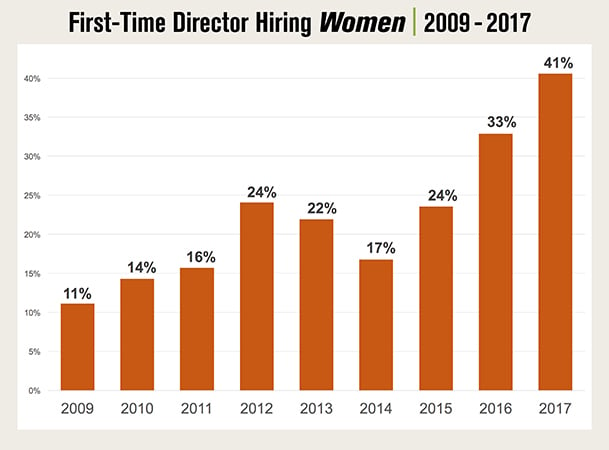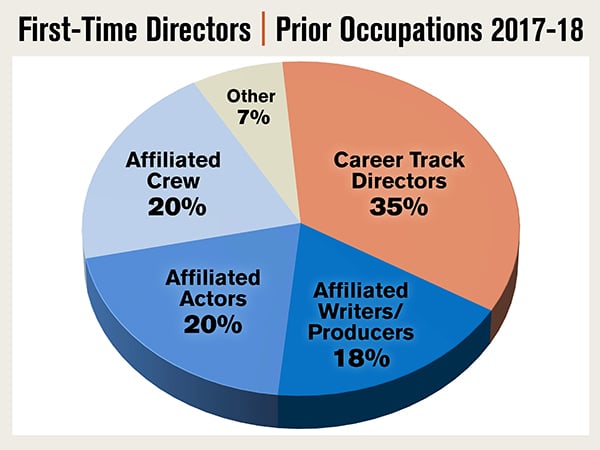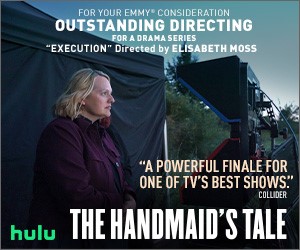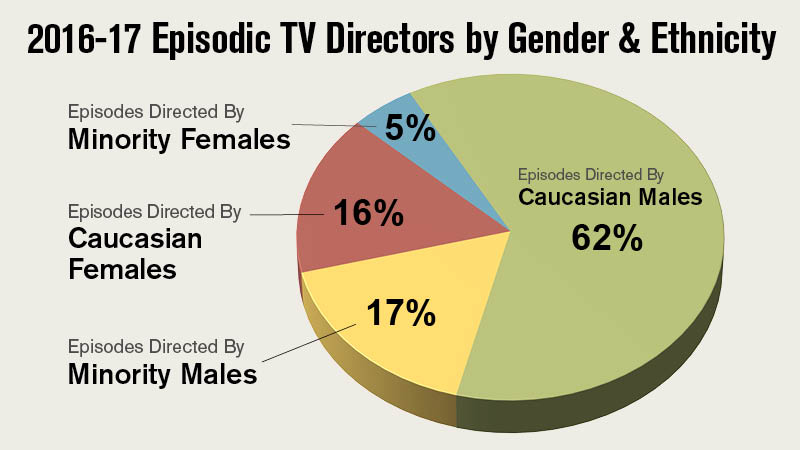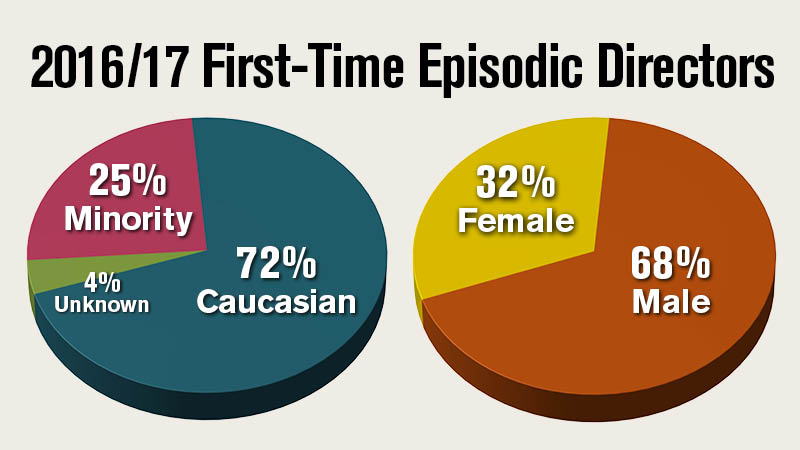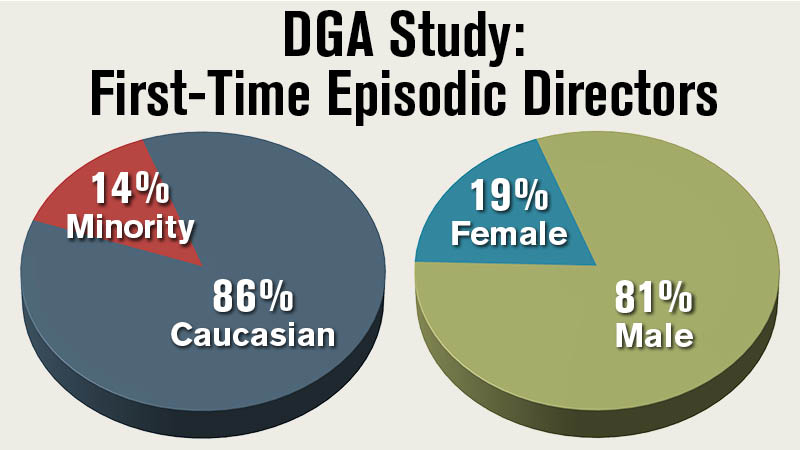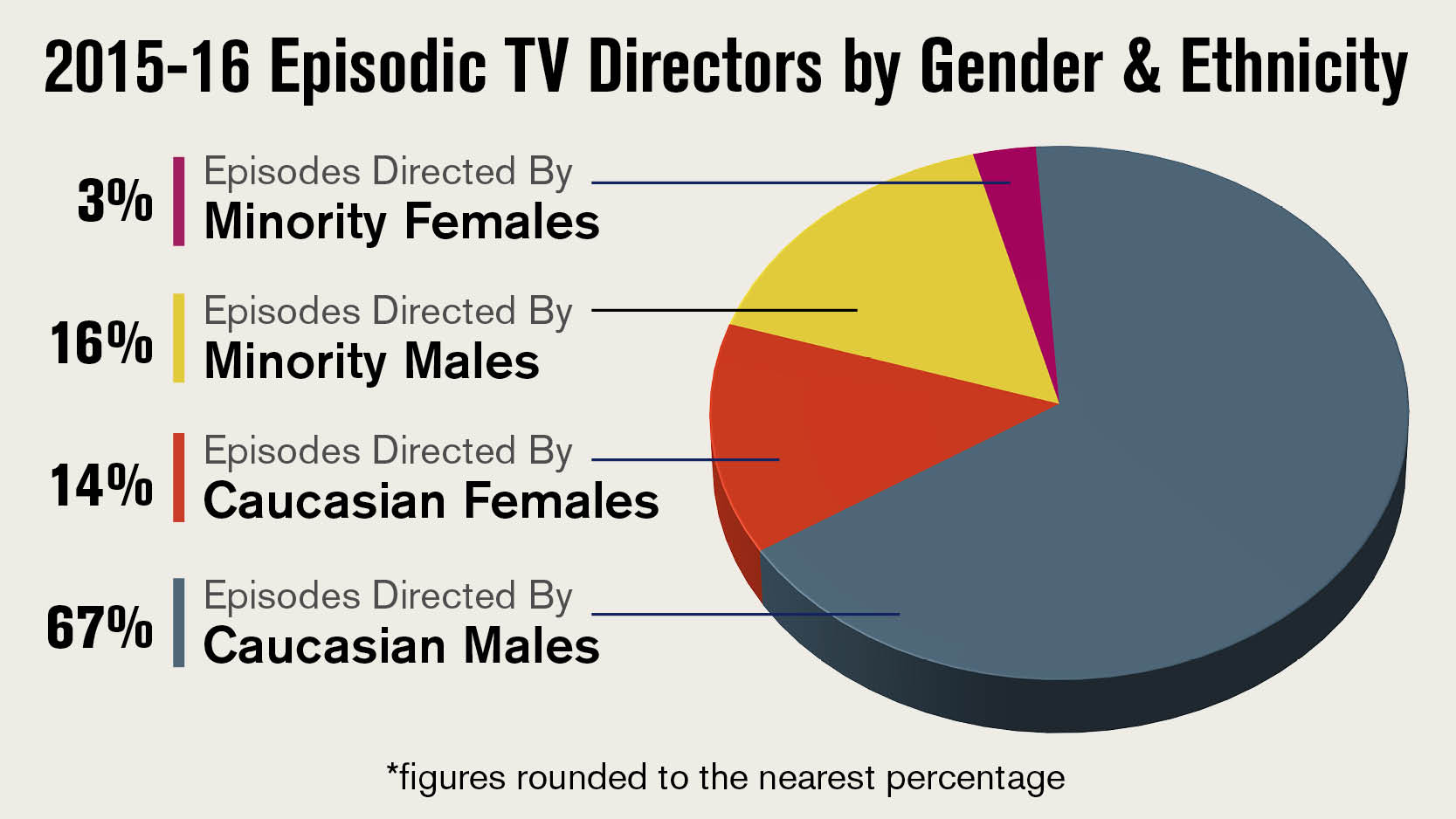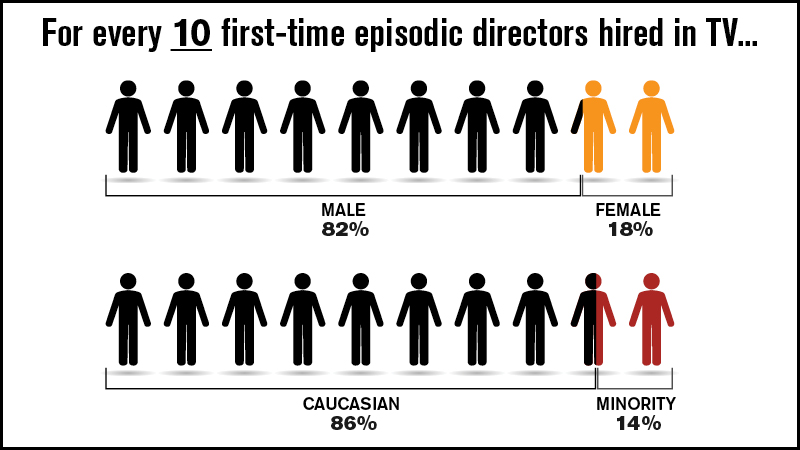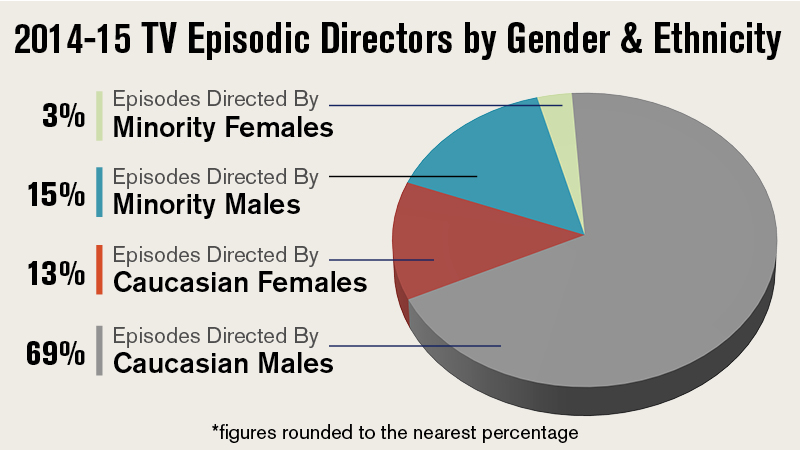‘It’s not just the right thing to do, it is vitally important to keep our industry growing, changing and innovating.’
LOS ANGELES – August 30, 2018 – In a business where success often hinges on getting that initial break to prove yourself, probably nothing has more power to make the pool of working directors more inclusive than ensuring that race or gender doesn’t keep any qualified applicant from getting a fair shot at that crucially important first job. That’s why first-time hires have been such a critical area of focus for the Directors Guild of America for so many years. As part of this effort, the Guild has been tracking and reporting publicly on trends in first-time television director hires for nearly a decade. The latest numbers—in a new DGA report out today—are certainly encouraging, but there’s still room for improvement.
Said DGA President Thomas Schlamme:
“True inclusion is not just a single hire or a line in a speech, it’s a commitment that must be exercised through ongoing action, day by day. The hiring improvements covered in this report show an industry that’s headed in the right direction today, but also one with a long road ahead to keep up with the increasingly diverse world tomorrow. What our study tells us is that there’s no shortage of talented women directors and directors of color ready for a first break. But for each hire to truly have an impact on the future, the studios and networks that make the hiring decisions need to open the doors even wider and discover a more inclusive population of candidates who seek directing as a career.”
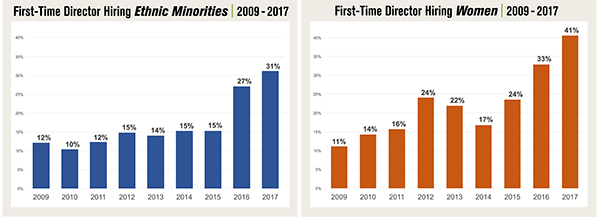
The new DGA study released today focuses on first-time hiring of episodic TV directors over the last nine seasons, from 2009/10 through 2017/18. The percentages of jobs going to first-time women directors and directors of color hit record highs for the second year in a row. Highlights include:
- 31% (63) of first-time hires in the 2017/18 season were directors of color. That is an increase from 27% in the 2016/17 season, and just 12% in the 2009/10 season.
- 41% (82) of first-time hires were women. That is an increase from 33% the prior season, and just 11% in the 2009/10 season.
- 13% (27) of first-time hires were women of color. That is an increase from 9% last season, and just 2% in the 2009/10 season.
But beneath the surface, progress on inclusion is complicated by a hiring dynamic in the industry. The study shows that while some actors, writers and others connected to a series do pursue directing after a first-break opportunity, the vast majority do not. The ongoing employer practice of “gifting” out directing jobs to these series-connected individuals who do not go on to pursue a career as a director has a damaging effect on new and established directors alike. The practice acts as a bottleneck to the pipeline, limiting first breaks for diverse directors.
In all, some 202 directors who had never before directed episodic television were hired by studios, networks, and executive producers in the 2017/18 season—a slight decrease from last season’s all-time high of 225, but considerably higher than all the other seasons covered since 2009. Of the 202 first-time directors, 117 (58%) were “series affiliated,” meaning they were already connected with the series for which they were hired as a writer/producer, actor, or crew member. On the other hand, just 70 (35%) were “career-track directors,” meaning they had prior directing experience and were either unaffiliated with the series or their affiliation was the result of their prior directing experience.
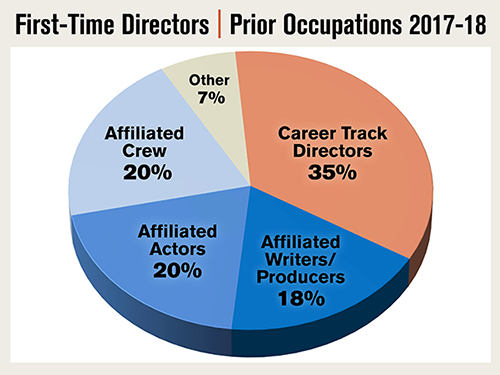
Long-Term Analysis
|
A long-term analysis tracking the career trajectories of 775 first-time directors initially hired in past seasons (between 2009/10 – 2015/16) found that those who were series affiliated were much less likely to direct in the future. An examination of the group’s subsequent employment[1] through the current season found that only 24% of series affiliated first time directors went on to direct shows they were not affiliated with in any capacity – a meaningful sign that they plan to develop TV-directing careers. Taking it a step further, series affiliated actors and series affiliated writer/producers were the least likely to go on and direct on other unaffiliated shows. By contrast, 71% of the career-track directors were subsequently hired to direct on other series. The long-term analysis also found that series affiliated directors, as a group, were less diverse. Women directors and directors of color comprised 25% of the series affiliated group, compared with 38% in the career-track group. The most successful first-time directors were career-track women with 88% going on to direct other series. Career track directors of color also did exceptionally well with 76% moving on. On the other hand, just 18% of series affiliated male Caucasians continued with directing on series they were not affiliated with in another capacity. |
Continued Schlamme:
“It seems rather clear: to bring real systemic change for the future—and not just stats from season to season—employers must give even more first opportunities to talented diverse voices committed to a career in directing. It’s not just the right thing to do, it is vitally important to keep our industry growing, changing and innovating.”
The DGA has been pressing studios, networks, and producers to be more inclusive in hiring for nearly four decades. Its efforts include: collective bargaining gains requiring television studios to operate TV director diversity programs, and all first-time TV directors to attend a DGA orientation; ongoing meetings with studios, networks and individual series regarding their hiring records; and publicized reports detailing employer hiring patterns. In addition, the Guild itself has operated numerous TV director mentorship and educational programs to support the career development of its members.
- For more information about the DGA’s diversity efforts, CLICK HERE.
[1] The study tracked the subsequent employment of first time directors through the most recent season (2017/18), which includes a minimum of two (and a maximum of eight) subsequent seasons for each first-time director. The study’s results were consistent for the entire period.
The DGA compiled the statistics for this report based on its proprietary data from the 2009/10 – 2017/18 television seasons. The data excludes pilots. In cases where a first-time episodic director could have been assigned to more than one previous employment category, the DGA placed the director in the category for which he or she is most well-known. All figures were rounded to the nearest percentage.

